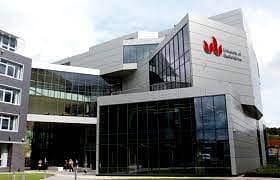Biomedical engineering is at the forefront of medical research, advancing our understanding of biology and improving healthcare. As a professional in this field, you will be able to use biotechnology and engineering to create new products and medicines aimed at solving a wide range of medical problems.
When you join this course, you start by learning about new technologies in cell and molecular biology before focusing on genomic and systems’ data; cell visualisation; and protein localisation in cells and tissues. You also study methods to create three-dimensional cultures and tissues.
Why choose this course?
- Benefit from a wide choice of laboratory-based research projects using state-of-the-art technologies and instruments
- Study with a research-active academic team who possess wide-ranging research experience in each subject area
- Benefit from the expertise of visiting specialists from external academic institutions, industry or government agencies
- Develop the ability to synthesise and use information from relevant sources, independently and critically evaluating current research and advanced scholarship
- Gain the practical, hands-on knowledge and expertise that will equip you to work within emerging areas of the biotech and pharmaceutical industries.
Unit Information - What will I learn?
Units
- Biomaterials (BHS042-6) Compulsory
- Cell And Molecular Biology (BHS001-6) Compulsory
- Computational Biology (BHS008-6) Compulsory
- Laboratory Based Research Project (Biomedical Engineering) (BHS021-6) Compulsory
How will I be assessed?
Assessment is undertaken in all units of the course to check that you have met (or are working towards meeting) the threshold standards expected of all students. Each unit of study has three summative assessment points and when each is marked you will be provided with feedback that is designed to show you where you are meeting/exceeding the standards and where/how you can/should make further improvement. The final assessment in each of the taught units is a formal written examination. Elsewhere, a range of assessment methods are used. Some you may be familiar with (e.g. laboratory reports) while others may be less familiar (e.g. research proposals, poster/oral presentations) but each is designed to build upon and extend what is expected of students with a lower degree. The research project is assessed in three parts: first, the use and maintenance of a project notebook; second, production of a formal project dissertation; and finally, an oral presentation with an associated question and answering session.
